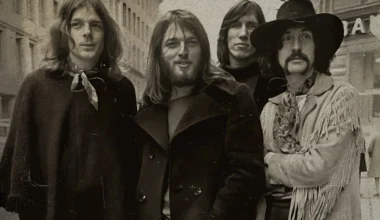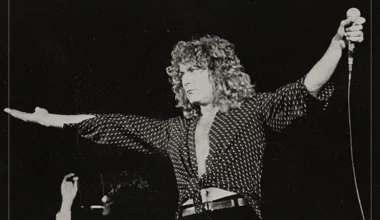The Beatles might have begun with platitudes about holding hands, but it quickly became one of the band’s main aims to move music away from the realm of soppy pop romance. Within a few short years, they soon found themselves shifting the scope of rock ‘n’ roll dramatically with songs like ‘I Am the Walrus’ and ‘Helter Skelter’. With these tracks, Paul McCartney and his mates had expanded the horizon of music.
These efforts were the group’s proverbial moonshot anthems. They showcased to the world that pop could be every bit as vast as classical music, and subject matters were strictly limited to the imagination of the maker. This would have a profoundly influential effect on their peers. As Roger Waters later explained, “Along with Sgt. Pepper, Pet Sounds completely changed everything about records for me.”
Both of these albums delved deeper into the sonics of pop than ever before, creating baroque beasts that had far more to them than a mere collection of pretty chords. So, Pink Floyd took that ball and ran with it, sprinting in an interplanetary direction. Music was, frankly, about to get as nerdy as a CEX staff party, and the world would lap it up.
Dark Side of the Moon saw the psychedelic band expand their sound to a honed nth. The concept album was as wide-reaching thematically as it was in terms of production. This marriage created a mercurial world that offered listeners a true sense of escapism. You could fall into the folds of the album, tapping into the magic that The Beatles first heralded when they sang, “Turn off your mind, relax and float downstream / It is not dying / It is not dying / Lay down all thoughts, surrender to the void”.
This new scope was something that deeply inspired McCartney, in turn. “Pink Floyd made some great records in the 1970s. Dark Side of the Moon had come out in 1973, and it would have been natural for Wings to do something in their style. A lot of people did,” he said in his recent book, The Lyrics: 1956 to the Present.
In fact, that style has persisted long beyond the 1970s. In the modern age, with studio technology assisting the exploration, world-building within music has remained a proud endeavour for the foolhardy few artists brave enough to shun the comfort of four familiar chords and a handful of cliches. One of the finest modern architects of this feat is Beck. And McCartney. had plenty of praise to heap upon the star.
“A few years back, Beck’s record Morning Phase was very like a Floyd record. It won ‘Album of the Year’ at the Grammys. I listened to it and I thought, ‘That owes a lot to Pink Floyd.’ Pink Floyd’s world was almost an extraterrestrial world, so it was a nice place to go,” Macca said. It’s not so much that Morning Phase followed them there, but it certainly took up the mantle of creating a space that it could call its own.
The 2014 album is a downbeat and mellow work of art. In typical Floydian fashion, its core is actually tied to tried and tested musicology, meaning that beneath the mirage of abstract studio techniques is solid pop. This is why Beck has always drawn the plaudits of his peers. As Johnny Cash said, “I listened to him backstage and I was so impressed with the way that he could do Appalachian music, like a Hillbilly, he’s really good at it. And then his own sort of songs.”
Cash reserved specific praise for the track ‘Rowboat’, stating: “It sounded like something I might have written or might have done in the sixties when I was going through some weird times.” This ability to blend the familiar with mercurial originality and innovative depth is something that has always been respected in both Beck and Pink Floyd, and McCartney saw the relationship between the two more clearly than most.






